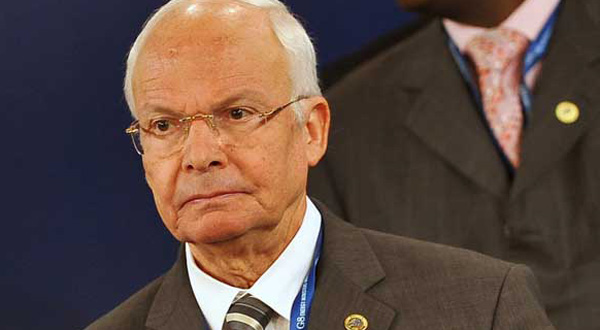CAIRO: The Egyptian Center for Human Rights (ECHR) has called for the resignation of the Minister of Electricity and Energy Hassan Younis, citing the excessive power cuts that have plighted Egypt since the beginning of Ramadan.
Issued on Thursday, the statement accuses the government of failure and corruption in its inability to deal with the recurring outages.
The ministry of electricity had announced a strategy of load shedding to be able to cope with the increase in consumption during the heat of August and the peak hours of Ramadan (7pm to 10pm).
The ministry also called on citizens to ration their consumption and claimed that excessive and wasteful use of electricity was one the reasons behind the power cuts.
“The [ministry’s] plan has proven its failures and lack of integrity, as the areas where there have been power cuts are the least areas that consume electricity,” the statement said.
The statement described the areas that don’t suffer from power cuts as “affluent areas”, naming Heliopolis, Nasr City, Maadi and Zamalek, where, according to the report, residents own more electric appliances and air conditioners that consume electricity.
However, there have been recent reports of power cuts from some of those areas including Maadi and Heliopolis.
Azza Mahmoud, a resident of Ard El Golf in Heliopolis, told Daily News Egypt, “We had two power cuts in the evening this week, they were on Tuesday and Wednesday and they lasted between 30 to 45 minutes.”
“This is the first year this has ever happened to us; we never used to have power cuts that lasted this long in Ramadan before,” she added.
Menna Omar, a Maadi resident previously told Daily News Egypt that while electricity was stable at her home in Zahraa El-Maadi, other parts of Maadi suffered greatly.
“I went to my doctor in Maadi the other day, but the electricity was out for around three hours from 8 pm to 11 pm. At the end I had to leave without seeing her.”
She added that the power is out at her parents’ place in another part of Maadi around three times a week. “On Monday, the power was out for around two hours during iftar,” she said.
The ECHR statement said that the center had received complaints of power cuts and water cuts from residents in Ain Shams, Zeitoun, Hadayek Al-Kobba, Al-Matareyya, Abbaseyya districts and several districts in Giza.
According to the Associated Press (AP), power cuts have also affected Egyptians from the Nile Delta in the north to Luxor, in addition to some Red Sea resorts.
Crowds of Egyptians angered by daily power cuts blocked a major highway south of Cairo Wednesday with barricades of burning tires, according to AP.
ECHR warned the government that the people would revolt because the power cuts take place without any warning and last for long periods of time during the scorching heat, which affects electric appliances.
Several local reports claimed that hospitals and factories have been affected by the power cuts, incurring financial losses. Stations responsible for the supply and distribution of water were also affected, leaving citizens in some areas with no water or electricity.
Officially, the outages have led to a blame game between the ministries of electricity and petroleum.
Mohamed Awad, head of the Holding Company for Electricity, blamed the power cuts on the Ministry of Petroleum.
“The petroleum sector reduced the amount of natural gas used to operate the electricity generating units from 98 percent to 79 percent,” Awad said.
On its part, the Ministry of Petroleum rejected the accusations and said that all sectors depending on natural gas are being supplied regularly with their needs especially the electricity sector.
President Mubarak held a closed meeting with the two ministers on Wednesday to solve the problem and clear the air between the two ministers.
Following the meeting, Petroleum Minister Sameh Fahmi agreed to increase the supply of natural gas and other forms of fuel to the ministry of electricity to meet its needs.
On Thursday, the two ministers held another meeting to agree on a strategy to deal with the excessive power cuts.
In a press conference following the meeting, Fahmi blamed the power cuts on the significant increase in temperature and humidity in Cairo, which affected the turbines that generate electricity.
He explained that the turbines in Egypt weren’t designed to handle the hike in temperatures that occurred this summer, like other turbines designed in Saudi Arabia, Qatar or the UAE.
The ministers mentioned that they made enhancements to the Egyptian diesel to increase its efficiency in operating power plants.
The ECHR called on the cabinet of ministers to apologize to the people for the failure of the “load shedding” strategy and added that this strategy “has deepened [the people’s] resentment against the government and its policies.”



